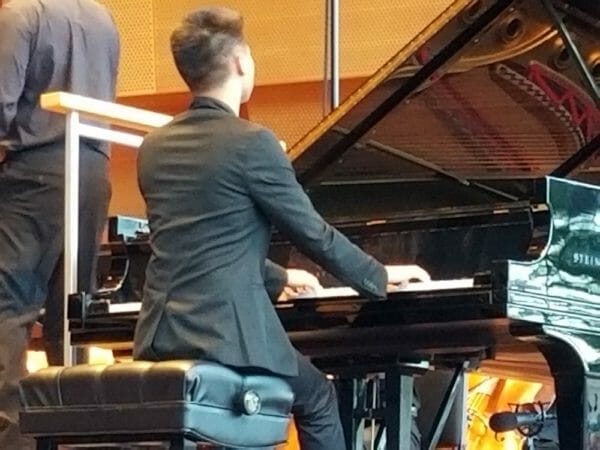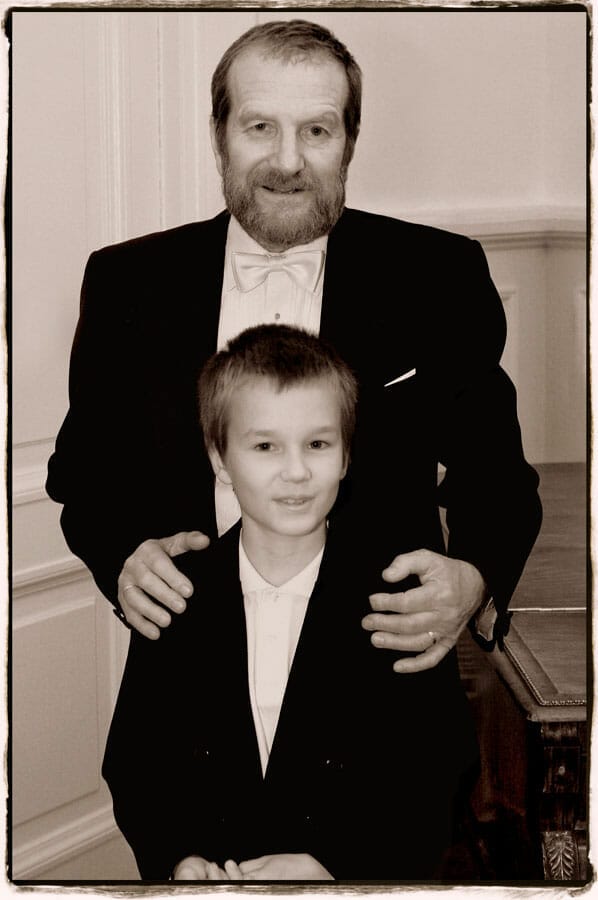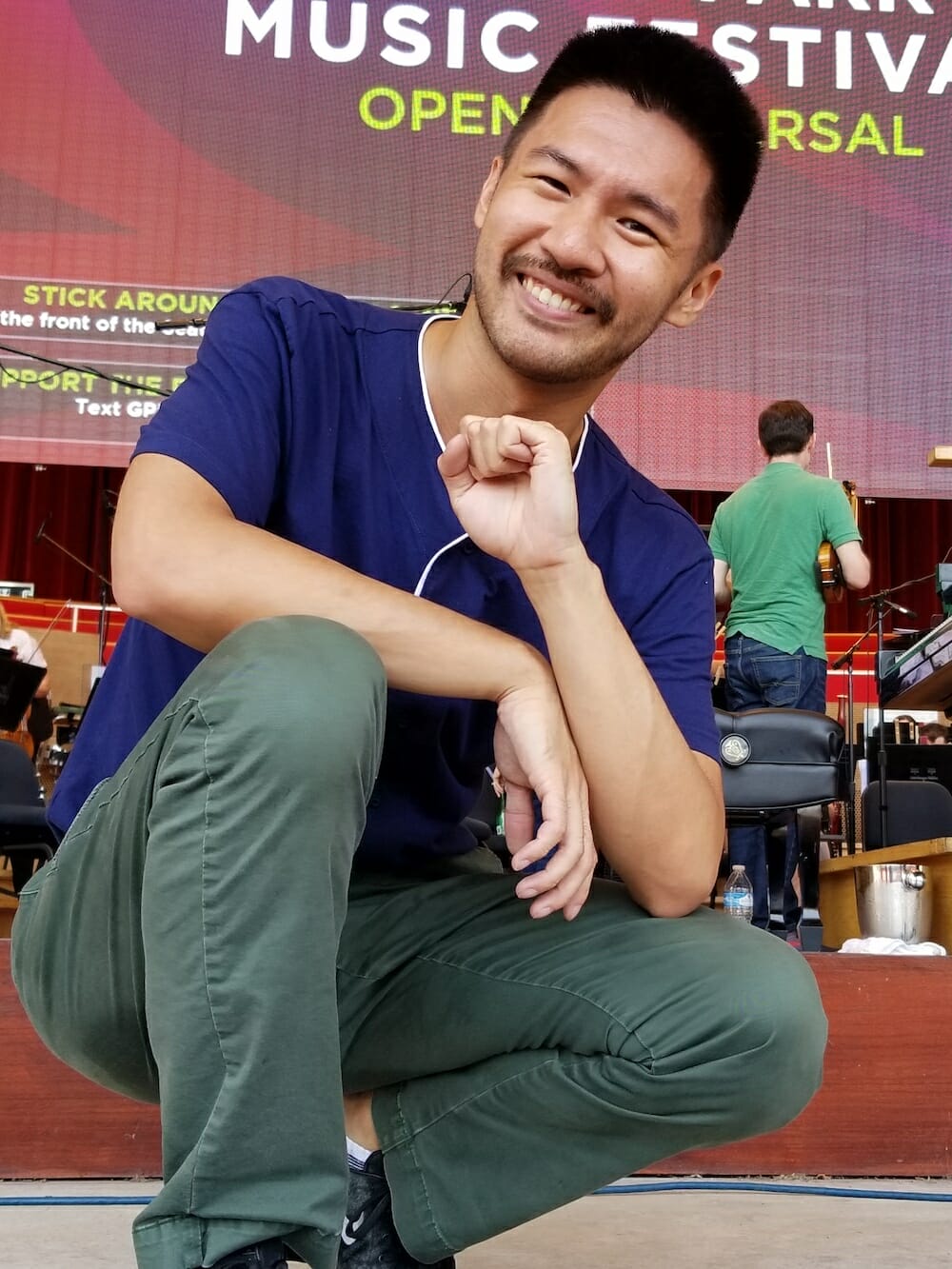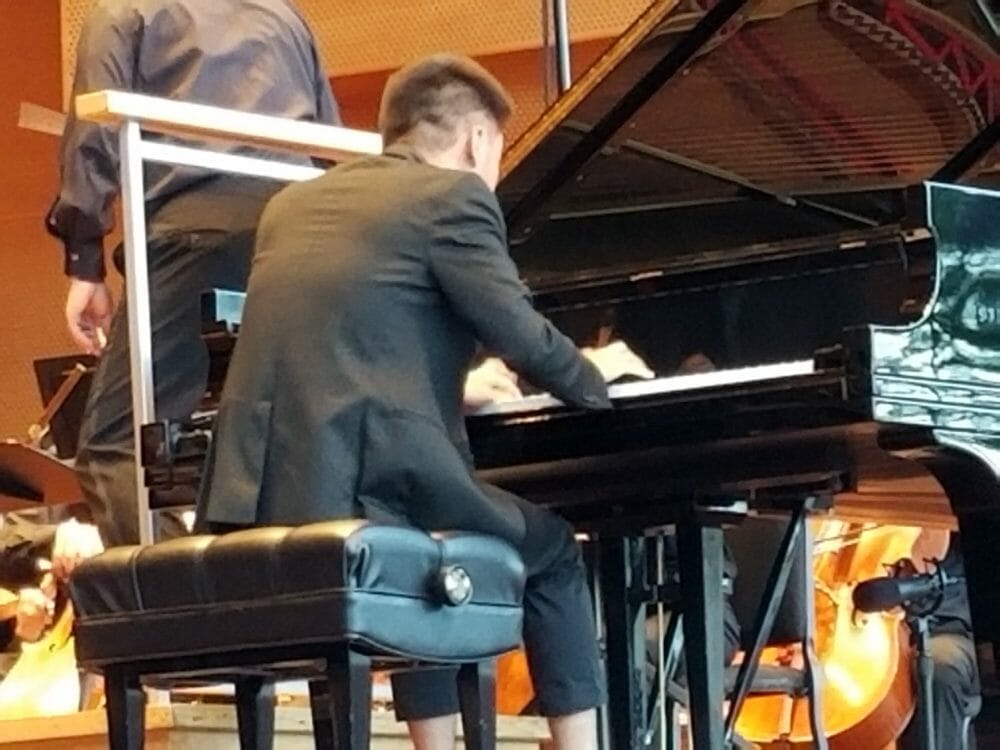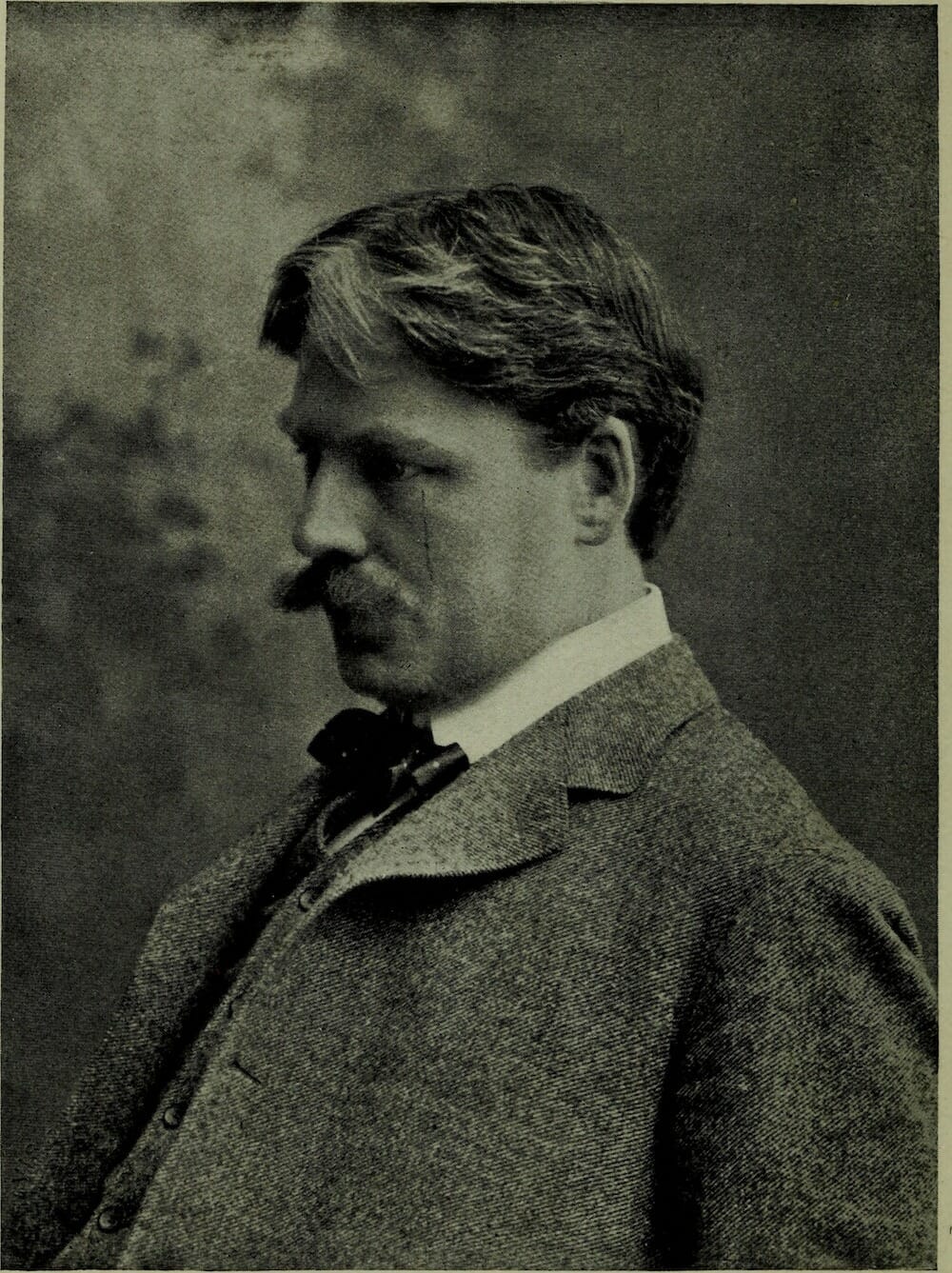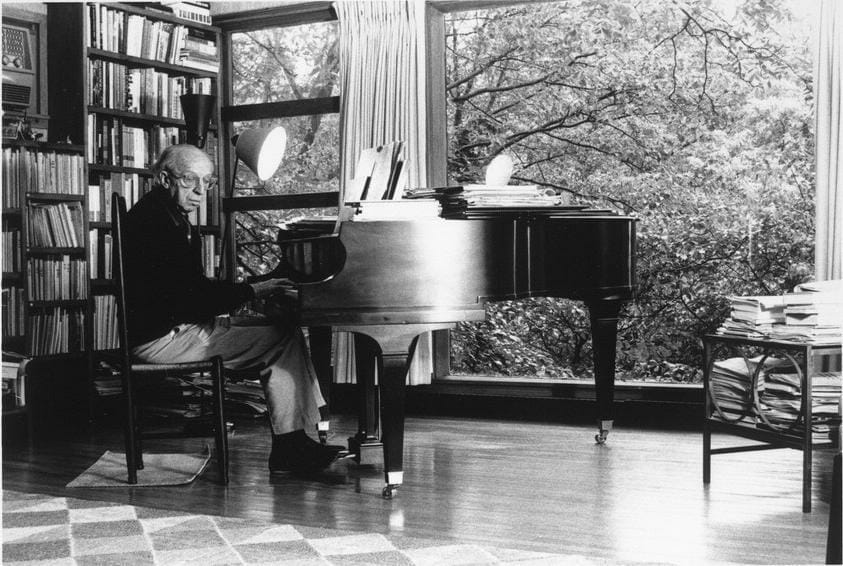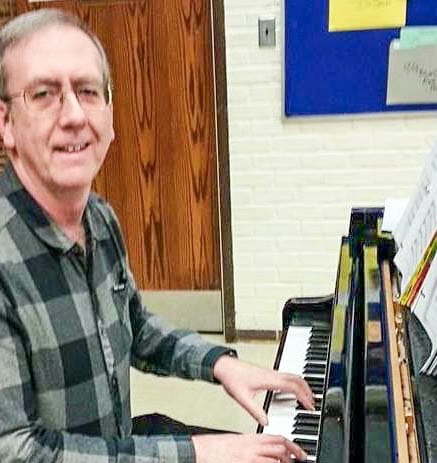Grant Park Music Festival performs American music full of energy like a rodeo; and Conrad Tao, the pianist, performs a Russian piano concerto with similar energy!
Exhilarating Piano Performance
Probably nobody in the audience expected Conrad Tao to play that Steinway grand piano with such electric energy the way he did - so fast and exciting - jumping off the keyboard with his hands and jumping off the piano bench with his posterior. This Shostakovich Piano Concerto No. 2 is so clever, bright and optimistic, it breaks the mold of Shostakovich's music often being introspective and moody. Dmitri Shostakovich wrote this concerto for his 19-year-old son Maxim in 1956-57, and it pretty much matches the mood of a young man with promising prospects, excited about life.
The clever and short melody opening was done by Eric Hall, a principal bassoon player,with injections of wit and sarcasm, imitated by others in the orchestra and then the pianist.
Soloist Conrad Tao Keeps Exuberance Alive!
Conrad Tao, a performer this reviewer always finds interesting and never boring, kept the exuberance alive all the way through the movement into an extended cadenza - a section with only the soloist and no orchestral backup.
The Focus Becomes Beauty
After spending that much energy, the second movement had to provide a break, and the music became expressive and thoughtful. The emphasis from our hero Mr. Tao was that in this heart- rending movement, he made beauty the focus, saving the excitement for later in the last movement
Exciting Finale and Encore
This final movement excited with its different rhythms — more intense than anything else in the piece and even in a different meter. This meter, 7/8 , intentionally makes each measure of the movement feel incomplete. Suddenly you're in a new measure before the last one was finished—and it happens every single measure! Complex time signatures such as 7/8 time, only invented in the 20 th Century, perhaps reflect our much faster, living-on-the-edge lifestyle compared to earlier times.
It’s exhilirating! Certainly the audience felt the energetic amazement, leaping immediately to their feet and simply would not stop applauding. So much so, that Mr. Tao performed an encore! This was Sonatina from the Actus Tragicus (BWV 106, aka Gottes Zeit ist die allerbeste Zeit) by Johann Sebastian Bach, arranged for piano four hands by György Kurtág, and interpreted for two hands by Tao himself. This satisfying solo piano piece communicated a universal calm and a slow, quieting, calming mood.
American Composer brings out Native American Melodies
Backtracking, the first piece on the program, Suite No. 2, "Indian," by Edward MacDowell (1860-1908), arranged the tunes heard in ceremonies and experiences of Native Americans for orchestra. This composer was highly regarded during his time.
With movements entitled Legend, Love Song, In Wartime, Dirge and Village Festival, the experiences of Native Americans in the late 19th century were put to orchestral music. Legend began with heroic brass music and In Wartime began with a lively, though dark flute melody in the lower register and a minor key. The Dirge effectively laments those who died in war time. The Village Festival is dramatic and ends grandly with a major victorious sound.
Grant Park Music Festival Orchestra Portraying a Rodeo
Much of the music by Aaron Copland (1900-1990) truly evokes the American West experience during his lifetime. Because Copland had just experienced rousing success with his music for the ballet Billy the Kid, written in 1938, he was commissioned to write another piece in 1942. Maybe because Copland wanted duplicate his Billy The Kid success, or, perhaps more nobly, maybe to distract our country from the terrors and tears of World War II, he insisted that this new commission similarly be a cowboy piece then composed Rodeo.
In either case, the very popular Rodeo was originally music for a ballet. Later, Copland wrote the version we heard tonight, arranged just for orchestra , and with no dancers. In this reviewer's opinion, the music of Copland is just THAT exceptional that it really does make you think you're out in the West - maybe Wyoming - at a real rodeo. Yes, they still happen today.
The Four Dance Episodes, done with plenty of zest and freshness, start with Buckaroo Holiday. You can just about picture the young, late teens/early 20s cowboy out to prove himself strong and in control as he rides a wild horse needing to be tamed. The goal is to hold on for eight seconds before the horse bucks the rider off, hopefully without broken bones.
The very peaceful, meditative music after the rodeo has concluded and everyone has gone home is called Corral Nocturne. One can really feel the peace in the deep darkness out on the prairie.
The Saturday Night Waltz was written for the main social occasion out West when young ones went looking for a spouse, and the Saturday night dance traditionally is/was the all important social event. Again, Copland's writing really does evoke the feelings of young, awkward love.
Last but not least, anyone who watched TV since the ‘80s probably saw the TV commercials for beef when they played this music: the Hoedown! Complete with fiddlers tuning up and showing off their fiddling skills, they evoke the West by playing their violins very, very fast. The Grant Park Orchestra fiddlers are indeed very skilled. Let's just say, it works.
The Grant Park Music Festival season continues through August 17. For details, please read "Grant Park Music Festival 2019 PREVIEW."
Photos courtesy of Grant Park Music Festival unless otherwise indicated
About the Author:
Mark Lindeblad is a working pianist and bassoonist in Chicagoland. He received the Bachelor's of Music performance degree, bassoon major, piano minor from Wichita State University in 1978 and the Master's of Music performance degree in bassoon from Roosevelt University in 1983 in Chicago. While doing piano accompanying was always happening on the side from high school and college years, it stepped up to be Mark’s primary occupation in the 1990's. Today he is a piano accompanist at Glenbard South High School, and plays principal bassoon in the Southwest Symphony, and also finds time for about 20 private students studying either bassoon or piano. For more information, visit Mark Lindeblad’s website: www.markspianostudio.com

